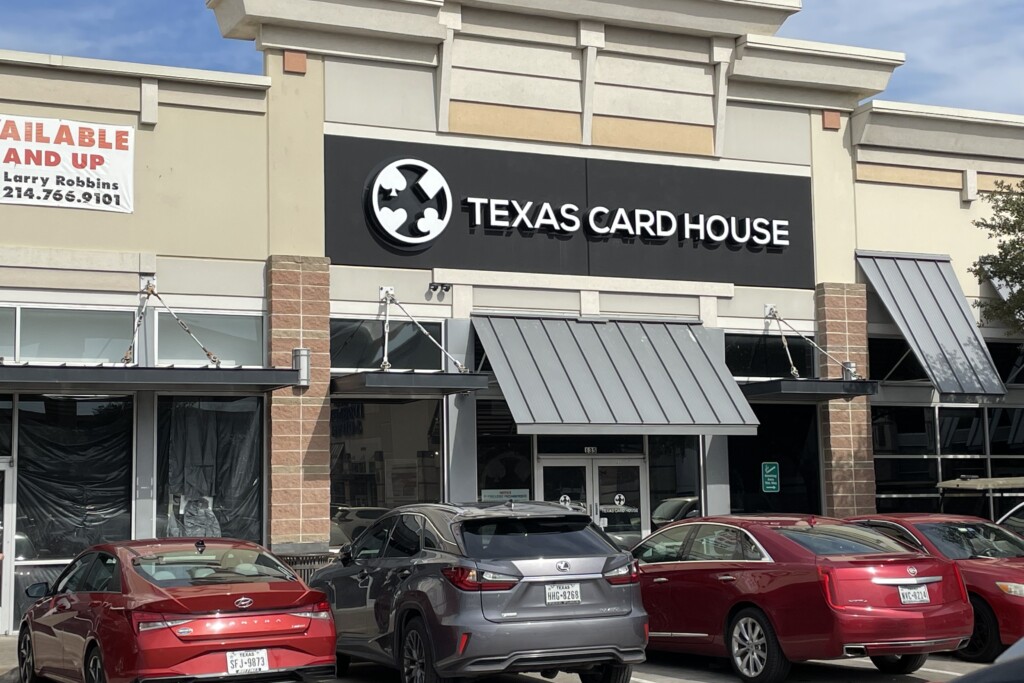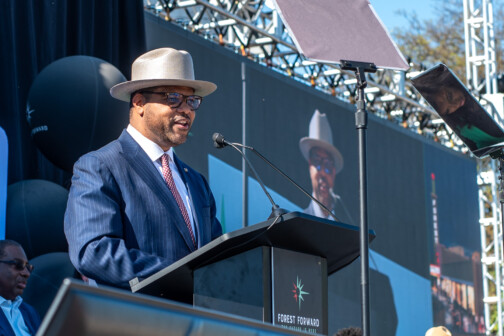Bad news for previously legal Dallas poker rooms. Civil District Court Judge Eric Moye last week ruled that the city was within its rights to revoke a certificate of occupancy for the Texas Card House, reversing a decision by the Board of Adjustment that allowed the poker room to legally operate. The Texas Card House plans to appeal, and a spokesman says it will be allowed to continue operating through the process.
This was a winding path through a gray area: Texas Card House gets around the state’s gambling ban by not taking any rake of the pot. Texas law has a carve-out for gambling so long as three things happen: the gambling must occur in a “private place,” the organizer can’t benefit economically from the game itself, and all the players must assume equal risk.
The Texas Card House operated as a social club with membership fees, and basically provided a place for its members to play poker and others to watch. Founder Sam Von Kennel believed the model met the letter of the law, and began opening card rooms across the state in 2015. The Dallas location in question, located in a strip mall off Harry Hines near the Sam Moon, opened in 2019. There are now around three dozen operating throughout Texas, and Dallas is the only city in the state that has pursued legal action against them.
The city revoked certificate of occupancy for the Texas Card House 14 months after its issuance, basing its decision on the contention that the Texas Card House was not a “private place.” The city’s trial brief lays out its argument: “It is undisputed that tens of thousands of people have access to playing the poker games at the Property, with an average of 630 players a day.” It notes that another 40,000 watch the chain’s livestreams; the Texas Card House has a production studio on its grounds.
Senior assistant city attorney Gary Powell has crafted the city’s legal argument against the poker rooms. When the matter reached the Board of Adjustment back in March, the volunteer body was faced with making legal interpretations. Powell presented an interpretation of his own, which argued that the city was within its rights to pull the CO because the operation violated a provision of “safe harbor” for gambling, which the Texas Legislature approved 49 years ago. Powell said the Lege’s intent was to protect poker happening in kitchens and living rooms, not entire businesses built around gambling.
The Board of Adjustment determined that it wasn’t the appropriate body to make such a decision and allowed the Texas Card House to keep operating. There have been no arrests at the Texas Card House, nor has the Dallas County District Attorney weighed in on its legality. All of this stems from the city attorney’s statutory interpretation.
Which brings us to the court ruling. Moye sides with the city, ruling that “the Board of Adjustment abused its discretion and made an illegal decision when it reversed the Building Official’s revocation of [the] Certificate of Occupancy.”
The city argued that there was precedent for revoking the CO. After giving the Texas Card House permission to operate in 2019, the city denied COs for three other proposed poker houses: Champions Club, Dallas Poker Club, and Fifty-Two Social. Champions Club cried foul and appealed, since the city had already given the Texas Card House permission to operate. Texas Card House walked away from its plans to open another location on Montfort, and then the building official revoked the Harry Hines CO.
The Board of Adjustment allowed the poker room to keep operating because the city failed to provide any material evidence that the card room’s operations had changed since it was given permission. The city attorney maintains that the building inspector has the right to revoke a CO if it believes that permission was given in error, and Judge Moye agreed.
This could have significant statewide ramifications. All other Texas cities have allowed these rooms to operate, which in effect buys into the belief that the model fits within the gray area created by the Texas Legislature. Texas Card House will appeal, and will likely keep appealing until the matter reaches the Texas Supreme Court. That would provide, for the first time, a legal precedent as to whether these operations are actually legal. If they’re not, municipalities would have a newfound precedent to shut them down.
Most of the hubbub around poker rooms came from neighbors near the old III Forks in North Dallas, where Champions Club hoped to open. They raised hell, and the city listened. If the state’s highest court sides with Dallas’ city attorney, the only move left for the poker rooms will be to fold.
Author






